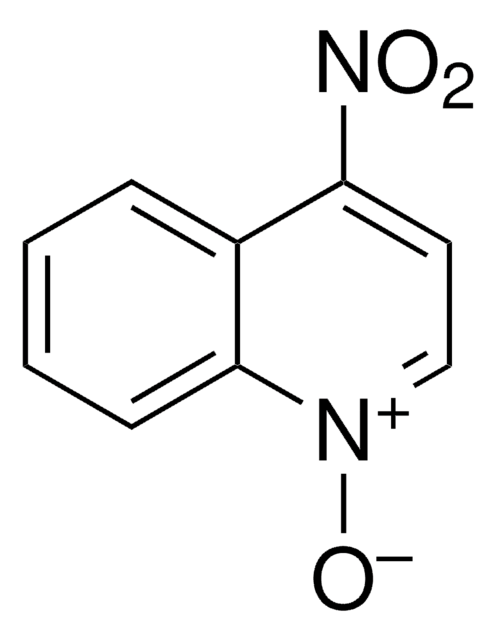C4369
Calcipotriol hydrate
≥98% (HPLC), powder, Vitamin D3 analog
Synonym(s):
(5Z,7E,22E,24S)-24-Cyclopropyl-9,10-secochola-5,7,10(19),22-tetraene-1alpha,3beta,24-triol, Calcipotriene
About This Item
Recommended Products
Product Name
Calcipotriol hydrate, ≥98% (HPLC)
Quality Level
Assay
≥98% (HPLC)
form
powder
solubility
DMSO: 15 mg/mL, clear
storage temp.
room temp
SMILES string
O.C[C@H](\C=C\[C@@H](O)C1CC1)C2CCC3\C(CCC[C@]23C)=C\C=C4\C[C@@H](O)C[C@H](O)C4=C
InChI
1S/C27H40O3.H2O/c1-17(6-13-25(29)20-8-9-20)23-11-12-24-19(5-4-14-27(23,24)3)7-10-21-15-22(28)16-26(30)18(21)2;/h6-7,10,13,17,20,22-26,28-30H,2,4-5,8-9,11-12,14-16H2,1,3H3;1H2/b13-6+,19-7+,21-10-;/t17-,22-,23-,24+,25-,26+,27-;/m1./s1
InChI key
XBKHACNRWFKJNC-MANNPBRJSA-N
Biochem/physiol Actions
Signal Word
Danger
Hazard Statements
Precautionary Statements
Hazard Classifications
Acute Tox. 1 Dermal - Acute Tox. 2 Oral - Eye Irrit. 2 - Repr. 2 - Skin Sens. 1B - STOT RE 1
Storage Class Code
6.1A - Combustible acute toxic Cat. 1 and 2 / very toxic hazardous materials
WGK
WGK 3
Flash Point(F)
Not applicable
Flash Point(C)
Not applicable
Personal Protective Equipment
Choose from one of the most recent versions:
Certificates of Analysis (COA)
Don't see the Right Version?
If you require a particular version, you can look up a specific certificate by the Lot or Batch number.
Already Own This Product?
Find documentation for the products that you have recently purchased in the Document Library.
Customers Also Viewed
Our team of scientists has experience in all areas of research including Life Science, Material Science, Chemical Synthesis, Chromatography, Analytical and many others.
Contact Technical Service












